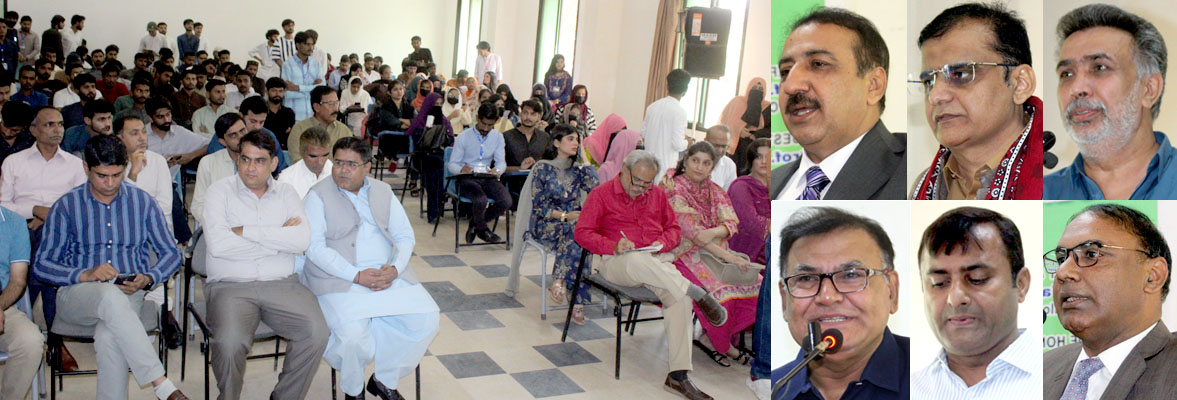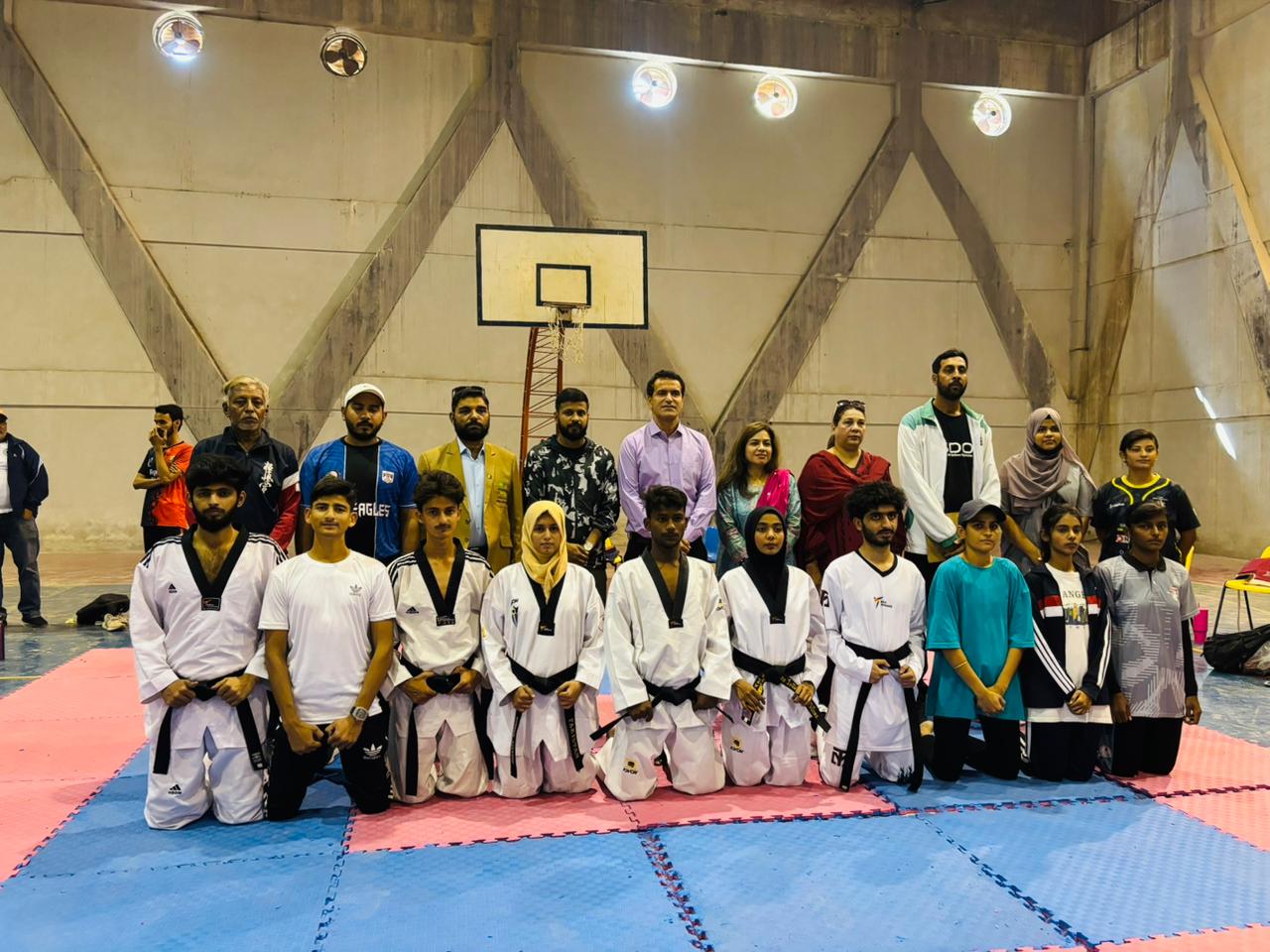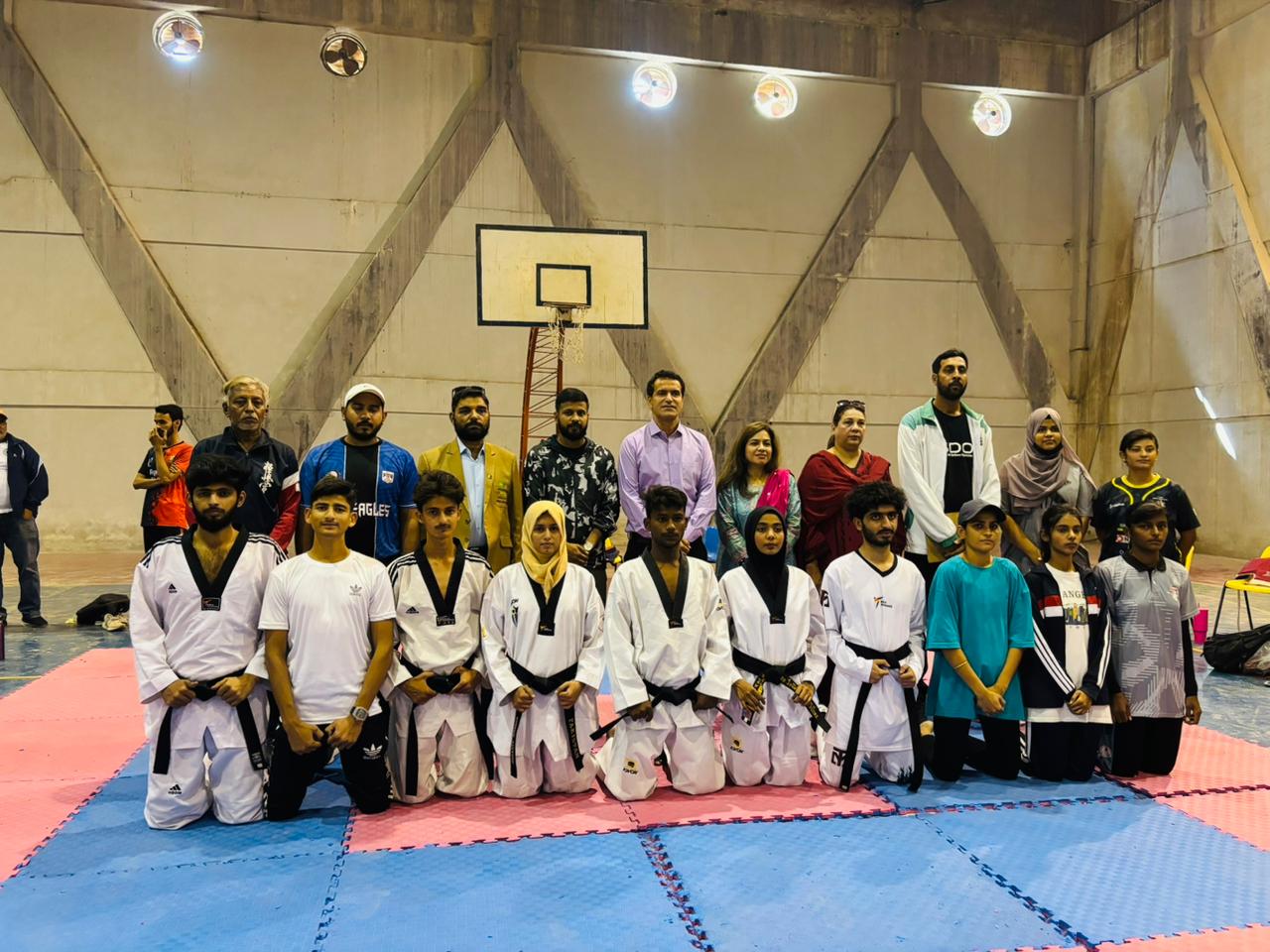
Experts urge climate preparedness to protect rural economy, community health in Sindh
The Center for Rural Development Communication (CRDC), University of Sindh, Jamshoro organized a one-day seminar on “Climate Resilience and Community Well-being in Rural Sindh”, which was presided over by Vice-Chancellor Professor Dr. Fateh Muhammad Marri.
In his presidential address, Dr. Marri congratulated the CRDC for organizing an informative and student-led seminar on such a vital and timely issue.
He said that climate change had emerged as one of the greatest challenges of the century, affecting all sectors of life, especially in developing regions like Sindh. “The temperature is no longer consistent; the pattern of rainfall has changed drastically, creating complex climate issues in Sindh and across Pakistan,” he said.
He further remarked that the province was witnessing extreme weather conditions, with hotter summers and colder winters than before. “This is what we call climate change. Sindh has both coastal and arid regions where the impacts of climate variation are evident—rising sea levels, soil erosion, and water scarcity have deeply affected the livelihoods of rural communities,” he added.
Dr. Marri emphasized that the University of Sindh was committed to promoting climate education, research and community engagement to strengthen local resilience.
He said that within Pakistan, Sindh was particularly vulnerable to natural disaster events due to its geographical location, socio-economic vulnerability and climatic conditions.
“In 2022, Sindh received rainfall in excess of 400pc over the 30-year average. Agricultural land in the low-lying areas of the province, downstream of the Indus is highly exposed to flooding, threatening food security in the province and across the country”, he said.
Environmental expert Nasir Ali Panhwar said that although Pakistan contributed less than one percent to global climate change, it remained among the most vulnerable countries to its impacts. He lamented that modern development projects often ignored natural waterways, which caused large-scale devastation during floods.
“In the past, when railway lines were laid, engineers ensured bridges and water passages to protect natural flow systems. Unfortunately, such care is missing today and we pay the price during downpours and flash floods,” he noted.
He said that the real challenge was to take the concept of climate resilience beyond academic discussions and translate it into public awareness and community-level actions.
Dean Faculty of Social Sciences Professor Dr. Nanak Ram said that the seminar’s topic was of vital importance as it provided practical understanding to students and faculty alike.
“Climate resilience is not merely a theoretical concept; it is a social responsibility. We must prepare our communities with adaptive strategies, including sustainable agriculture, water conservation and awareness,” he stated.
Senior journalist Mumtaz Bukhari highlighted that Sindh had suffered recurrent floods in recent years, affecting millions of people and displacing entire communities.
“Sindh University has five seasons—spring, summer, autumn, winter and the season of education and affection,” he said humorously, adding that the university’s intellectual climate was as vibrant as its academic calendar.
Showing images of flash floods of 2022 and 2025, he described how cloudbursts and erratic rainfall patterns had become more frequent and destructive.
Station Director Radio Pakistan Hyderabad Dr. Ali Akber Hingoro said that community well-being and climate resilience were interlinked. “Even if employment opportunities and infrastructure are provided, they will have no long-term benefit unless we ensure environmental stability,” he asserted.
He warned that sustainable development would remain unachievable without serious measures to address climate threats.
“When glaciers melt, sea levels rise and the intensity of heat increases, the entire ecosystem is affected. Around 99 percent of the rural economy depends on climate-sensitive sectors such as agriculture and livestock—we must invest in them to achieve resilience,” he added.
Director CRDC Dr. Rashid Khuhro welcomed the guests and said that the center was actively working to create awareness among students and communities about climate adaptation and sustainable rural development.
He emphasized that education, research and community partnerships were key to building a climate-resilient Sindh.
The event was attended by a large number of faculty members, researchers and students, including Director SU’s Area Study Centre Dr. Mukesh Kumar Khatwani, Dr. Abdul Razaq Channa, Dr Dastar Chandio, Dr. Abdul Razaq Chhachhar, Zafar Mangi, Dr. Muhammad Qasim Nizamani, Dr. Salman Ahmed, Dr. Mubarak Lashari, Dr. Bashir Memon, well-known novelist and author Kaleem Butt and many others.

